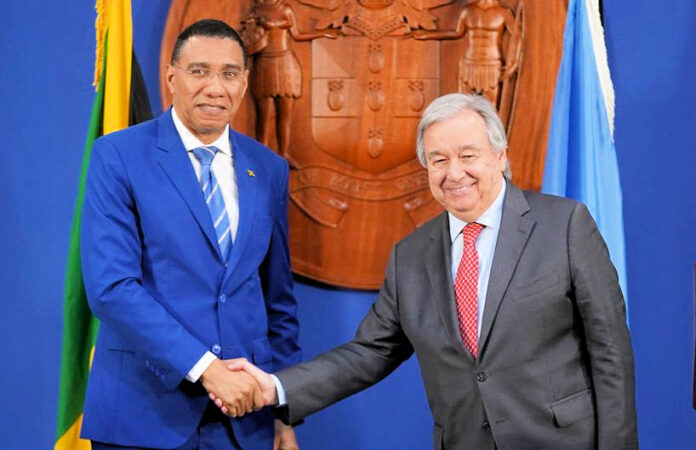
(Français)
The U.S. and Canada have renewed their pressure on the United Nations to militarily intervene in Haiti because they are alarmed at the entrance of a new actor onto Haiti’s stage, the one they fear the most: the Haitian masses.
Since late April, tens of thousands of Haitians, armed primarily with machetes, have coalesced into a leaderless nationwide movement called the “Bwa Kale” (peeled wood), which has pursued, confronted, captured, and killed over 100 criminal gang members, often burning their bodies.
The gruesome spectacle of the grisly executions and their aftermath, filmed with cellphones and circulated on social media, has struck fear into the hearts of not only of the criminal gangs that have terrorized Haitians over the past decade but also the neocolonial strategists in Washington and Ottawa who fear that Haiti could be on a revolutionary path toward radical social change.
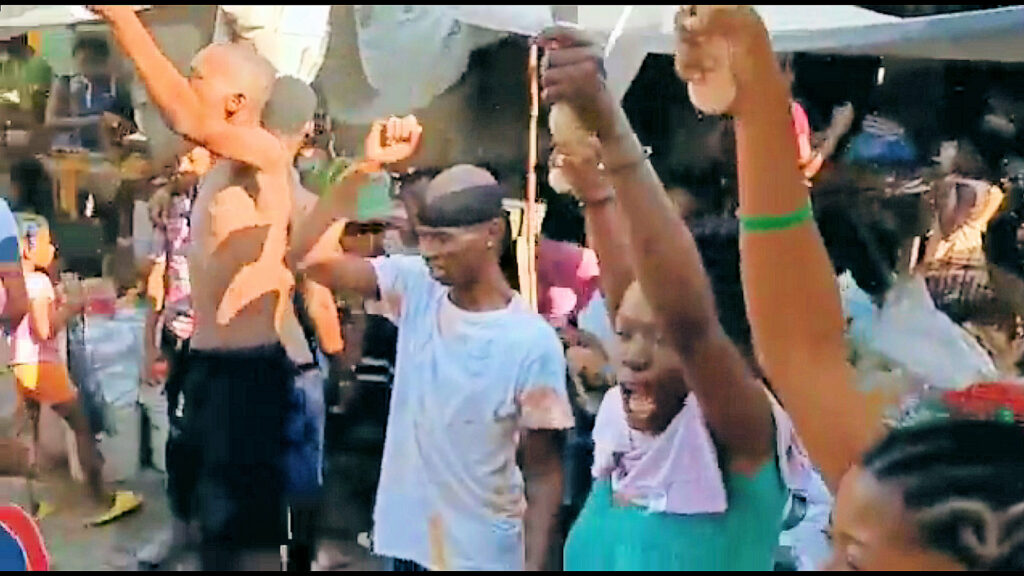
On May 15, UN Secretary General Antonio Guterres traveled to Kingston, Jamaica to once again pressure Prime Minister Andrew Holness to step forward as the leader of a multinational armed force, a role he shunned in February.
Canada also demurred from leading such a force, despite a trip by President Joe Biden to Ottawa in March.
Guterres tried to present Haiti’s purely internal class struggle as a regional danger: “I want, once again, to ask the international community to understand that effective solidarity with Haiti is not just a question of generosity, it is essentially a question of intelligent self-interest, because the current situation in Haiti reflects a threat to the security of the entire region and beyond.”
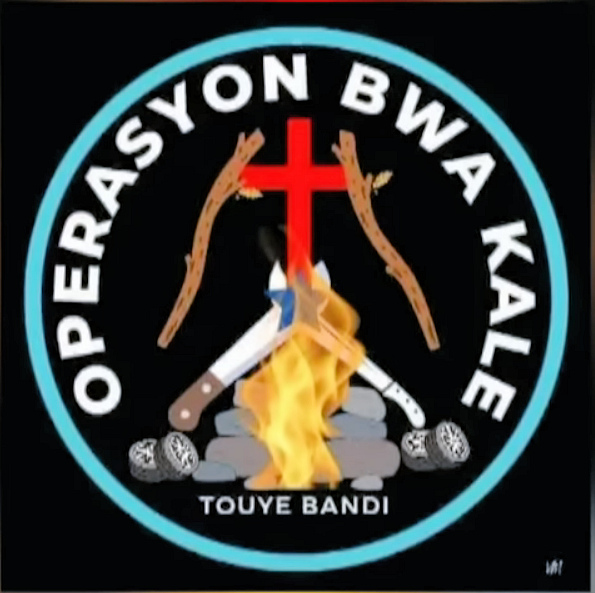
Such hyperbole is Guterres’ attempt to inflate a domestic crisis to international proportions and justify the UN Security Council again placing Haiti under its Chapter 7 oversight with its Oct. 21, 2022 Resolution 2653. This power, which gives the UNSC the authority to levy sanctions and send troops, is only supposed to be invoked, according to the UN Charter, “to maintain international peace and security,” that is to stop conflict between two warring states.
Parallel to Guterres’ push, certain media outlets have published reports presenting the Bwa Kale movement as “dangerous” (CBC).
The USAID-funded website Insight Crime published a May 9, 2023 article entitled “Haiti’s Anti-Gang Vigilantes May Pose Future Criminal Threat.” Citing examples from Mexico, El Salvador, and Colombia, author Henry Shuldineren warns that “groups [that] start out fighting criminal organizations […] frequently take advantage of popular support and a lack of institutional capacity to move into criminal economies like extortion, arms and drug trafficking, and murder-for-hire.”
A similar message is sent in a May 8 CBC News report by Evan Dyer. Claiming that “many have reservations about the movement and where it might lead,” the CBC quotes a spokesperson for Global Affairs as saying “Canada is deeply concerned by the recent population movement and escalation of violence in Haiti…” Dyer also reports that “the Bwa Kale movement appears… to undermine Haiti’s standing among the nations that back it, including Canada.”
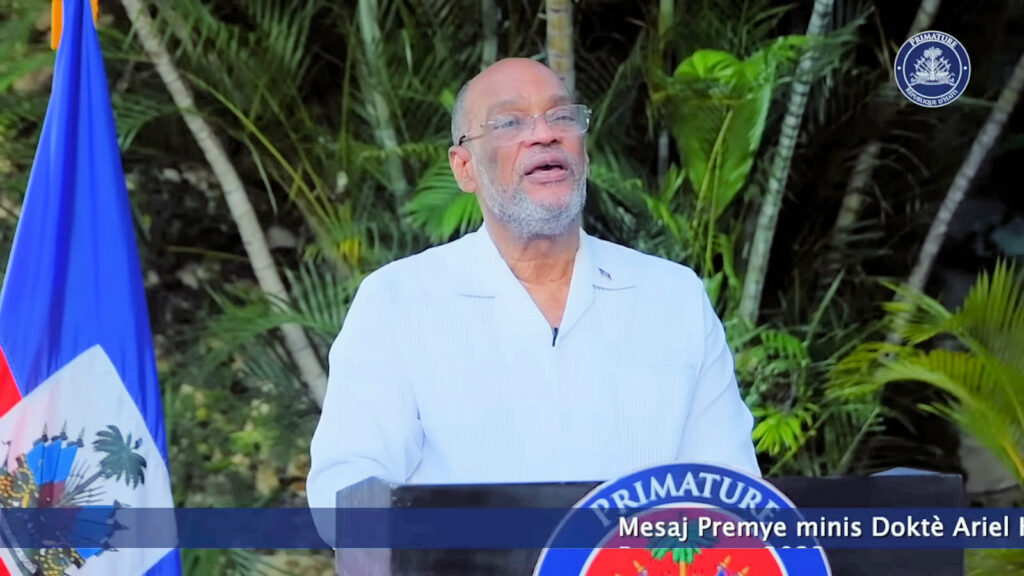
Until now, Canada has steadfastly supported de facto Prime Minister Ariel Henry who spoke out against the Bwa Kale movement in his May 1 address. “Don’t let bad plans make us play sordid games,” Henry said. “”I ask my compatriots, whatever they may have suffered at the bandits’ hands, to remain calm.”
However, a senior Haitian Foreign Ministry official told Haïti Liberté that, behind the scenes, Canada is pressuring to jettison Ariel Henry and replace him with Steven Benoît, the Prime Minister proposed by the Montana Accord coalition, Henry’s principal political rival for leading Haiti until it can organize elections.
Indeed, there may be movement in the halls of power because on May 12, Haiti’s daily Le Nouvelliste published an interview with Ted St. Dic, one of Montana’s most prominent leaders and spokesmen, saying: “We are preparing for the big moment of mandatory negotiation to solve the problem [the political crisis], change the political leadership, reinstall the institutions leading the country so that order can be restored in order to go towards elections.”
St. Dic also talked about taking measures “so that the police can do their job in an institutional way,” an apparent reference to the unorthodox alliance between the Haitian people and street policemen in the Bwa Kale movement.
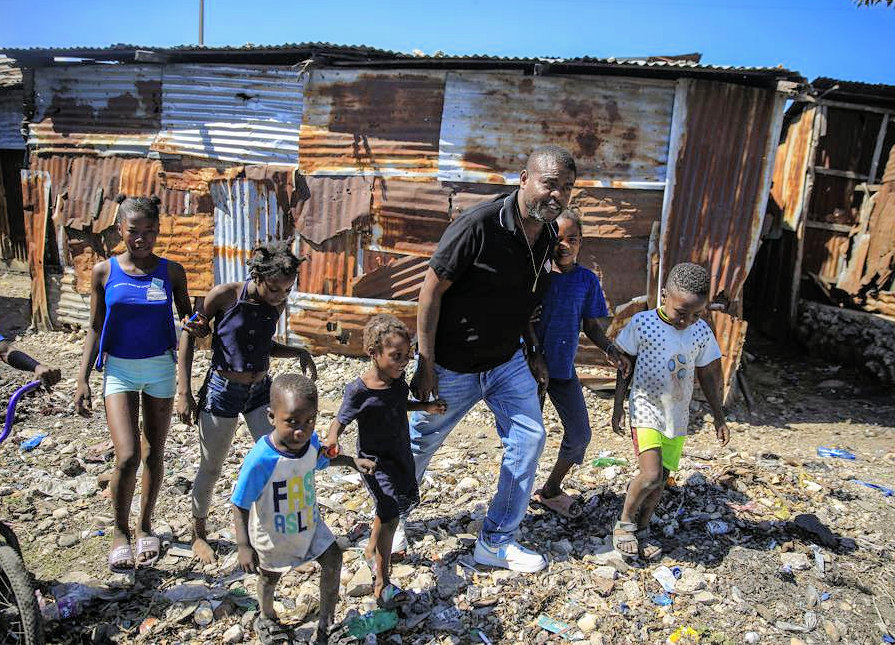
Haiti’s principal human rights group, the National Network for the Defense of Human Rights (RNDDH) also pushed back obliquely against the Bwa Kale movement in a May 9 report saying it was ineffective and being manipulated.
Although the Bwa Kale movement has been hugely successful in all but stopping kidnappings, rape, and extortion in the space of three weeks, the RNDDH argued that “the mob, armed with machetes and few firearms, cannot overcome the banditry that the state authorities have currently had for several years as a system of governance.” With tortured logic, the RNDDH denounced “the state authorities who hide behind the Bwa Kale movement to bring the population to eliminate the links they have with the armed individuals who sow terror among the population and prevent justice from being brought to them.” It then demands that those same “state authorities must immediately take the necessary measures to put an end to all forms of violence to which society is subjected because no democratic society based on the respect and realization of human rights can currently have this spiral of violence as its foundation.” In other words, the Bwa Kale movement is part of a “spiral of violence.”
Meanwhile, the principal target of the RNDDH in recent years, former anti-gang cop Jimmy Cherizier, the leader of the Revolutionary Forces of the G9 Family and Allies, told Haïti Liberté in a May 10 interview that his coalition of armed neighborhood committees fully supports the Bwa Kale movement.
“It is a people’s movement against the many thugs who kidnap and rape the children of the poor, the children of the most helpless classes,” he said. “There is no one behind it other than the Haitian people. But many journalists are trying to make people believe that the G9 movement is behind it and that it is a bandit-to-bandit movement just so they can discredit the people’s fight. That is one of the reasons why we in the G9 hadn’t taken a public position to support Bwa Kale, because we know the system is so strong and powerful. Once we take a public position to say we support Bwa Kale, we feared they would use this to make politics with it. But we of the G9 Family and Allies, we fully support the Bwa Kale movement that the people have launched, because it brings many results. Since the Bwa Kale started, there have been zero kidnappings for two weeks, that is thanks to the people’s movement. So we in the G9 encourage the people not to let go of their Bwa Kale, not to stop, for the people to continue to maintain the movement.”
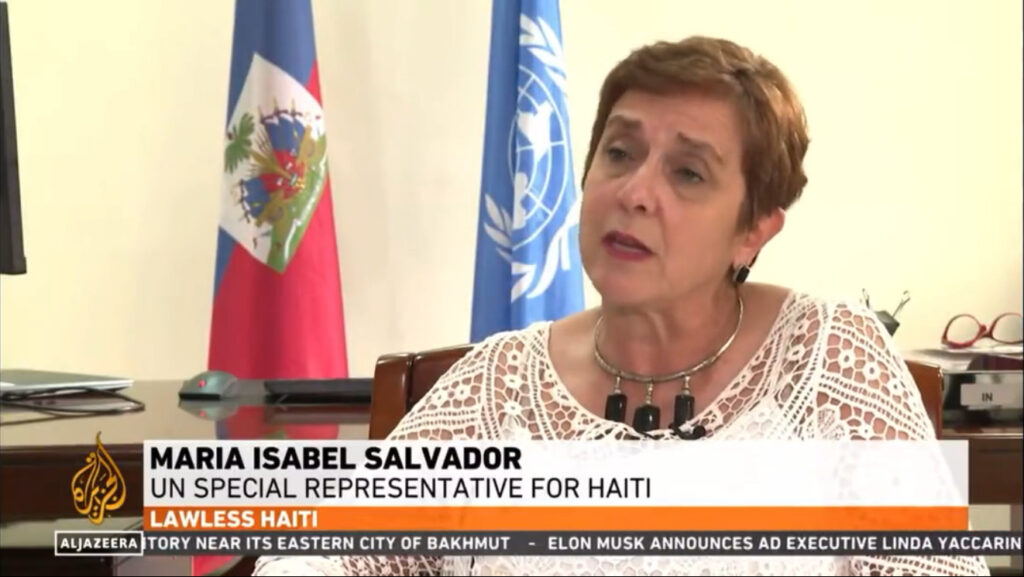
On May 15, Al Jazeera aired a report featuring the call of Maria Isabel Salvador, the new chief of the UN Office in Haiti (BINUH): “There should be a multilateral force with the leadership of one country, whatever country…”
On May 16, the Miami Herald published an op-ed by Eddy Acevedo, formerly USAID’s national security adviser and principal liaison with the National Security Council, entitled “Haiti is a failed state. It needs an international force to bring security, stability.” Acevedo argues that “the United States and Canada should lead the effort to deploy an international force or redeploy UN peacekeepers.”
But as Haïti Liberté told the UN Security Council on Dec. 21, 2022, “the situation in Haiti cannot be resolved through foreign intervention, military force, or even sanctions. The Haitian people, acting with full sovereignty, must be allowed to sort out their own problems.”
That is exactly what they are doing today with the Bwa Kale movement, and Haiti has never seen more rapid and effective results.













[…] by Jamaica Prime Minister Andrew Holness, who met with UN Secretary General Antonio Guterres one month ago. The conclave comes at a time when Haitian attendees, despite various agreements signed, have […]
[…] recently expressed his support for the Bwa Kale movement in an interview with Haiti Liberté. He was hesitant to do so, however, […]
[…] Chérizier, is striving to turn the movement in his favour, asserting that the gangs he represents fully support Bwa Kale. Chérizier is trying to craft an image as a politician serving the people; he has claimed […]
[…] Chérizier, is striving to turn the movement in his favour, asserting that the gangs he represents fully support Bwa Kale. Chérizier is trying to craft an image as a politician serving the people; he has claimed […]
[…] Chérizier, is striving to turn the movement in his favour, asserting that the gangs he represents fully support Bwa Kale. Chérizier is trying to craft an image as a politician serving the people; he has claimed […]
[…] Chérizier, is striving to turn the movement in his favour, asserting that the gangs he represents fully support Bwa Kale. Chérizier is trying to craft an image as a politician serving the people; he has claimed […]
[…] Chérizier, is striving to turn the movement in his favour, asserting that the gangs he represents fully support Bwa Kale. Chérizier is trying to craft an image as a politician serving the people; he has claimed […]
[…] Chérizier, is striving to turn the movement in his favour, asserting that the gangs he represents fully support Bwa Kale. Chérizier is trying to craft an image as a politician serving the people; he has claimed […]
[…] Chérizier, is striving to turn the movement in his favour, asserting that the gangs he represents fully support Bwa Kale. Chérizier is trying to craft an image as a politician serving the people; he has claimed […]
[…] recently expressed his full support for the Bwa Kale movement in an interview with Haiti Liberté. The G9’s leadership had previously […]
[…] se esfuerza por poner al movimiento a su favor, afirmando que las pandillas que representa apoyan plenamente a Bwa Kale. Chérizier intenta construir una imagen de político al servicio de la gente; ha […]
[…] se esfuerza por poner al movimiento a su favor, afirmando que las pandillas que representa apoyan plenamente a Bwa Kale. Chérizier intenta construir una imagen de político al servicio de la gente; ha […]
[…] se esfuerza por poner al movimiento a su favor, afirmando que las pandillas que representa apoyan plenamente a Bwa Kale. Chérizier intenta construir una imagen de político al servicio de la gente; ha […]
[…] s’efforce de retourner le mouvement en sa faveur, affirmant que les gangs qu’il représente soutenaient pleinement Bwa Kale. Chérizier cherche à se forger une image de responsable politique au service de la […]
[…] se esfuerza por poner al movimiento a su favor, afirmando que las pandillas que representa apoyan plenamente a Bwa Kale. Chérizier intenta construir una imagen de político al servicio de la gente; ha […]
[…] s’efforce de retourner le mouvement en sa faveur, affirmant que les gangs qu’il représente soutenaient pleinement Bwa Kale. Chérizier cherche à se forger une image de responsable politique au service de la […]
[…] s’efforce de retourner le mouvement en sa faveur, affirmant que les gangs qu’il représente soutenaient pleinement Bwa Kale. Chérizier cherche à se forger une image de responsable politique au service de la […]
[…] se esfuerza por poner al movimiento a su favor, afirmando que las pandillas que representa apoyan plenamente a Bwa Kale. Chérizier intenta construir una imagen de político al servicio de la gente; ha […]
[…] se esfuerza por poner al movimiento a su favor, afirmando que las pandillas que representa apoyan plenamente a Bwa Kale. Chérizier intenta construir una imagen de político al servicio de la gente; ha […]
[…] s’efforce de retourner le mouvement en sa faveur, affirmant que les gangs qu’il représente soutenaient pleinement Bwa Kale. Chérizier cherche à se forger une image de responsable politique au service de la […]
[…] G9 gave strong verbal support to the Bwa Kale movement, while the militants of its affiliated Chen Mechan (Bad Dog) armed group even accompanied […]
[…] G9 a apporté un soutien verbal fort au mouvement Bwa Kale, tandis que les militants de son groupe armé affilié Chen Mechan (Bad Dog) […]
[…] 15: UN Secretary General Antonio Guterres travels to Jamaica to again pressure Prime Minister Andrew Holness to head a UN-sponsored multinational military intervention into […]
[…] 15: UN Secretary General Antonio Guterres travels to Jamaica to again pressure Prime Minister Andrew Holness to head a UN-sponsored multinational military intervention into […]